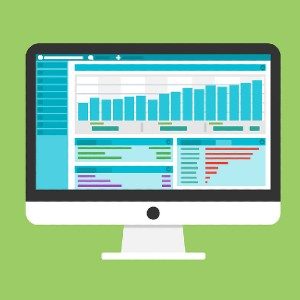Technology and innovation has experienced a dizzying growth in the past two decades.
From cloud computing to data science, blockchain to artificial intelligence, the explosion in the digital space has reeled in innovative products and services that are seeping into all industries.
One such innovation that coupled nicely with marketing was Machine Learning — a branch of AI that automates analytical model building through big data digestion and pattern identification. This allows for fast decision-making applications with minimal human intervention. So, how can Machine Learning boost your Marketing efforts in 2022? In this post we walk you through 7 ways you can use machine learning in your business.
1. Lead Scoring
An overview of the process you can pursue here:
- 1) Collect all possible customer data in a Data Lake.
- 2) Categorise the customers in various tiers.
- 3) Build algorithms to identify behavioural patterns for each tier.
- 4) Map collection points across all channels and assets to evaluate prospects.
- 5) Apply the Algorithm to classify inbound prospects using the behavioural patterns observed in your Tiers.

2. Support Chat Bots
For instance, a potential lead with queries can engage with a bot at any time of day, be delivered resources that could assist in his or her purchase decision within seconds. If this remains unsatisfactory, the bot can then notify the designated key human contact to jump in and interact with the user. Here’s some ideas you could start implementing:
- – In-Messaging Advertising with an interact feature. (ex. LinkedIn InMail Sponsored Ads.)
- – Social Media Profile Messaging Bots.
- – Website/Apps Native Chatbots.

3. Personalising content
For instance, a user who has been on your website for a long period of time and ends the session with an item in the cart, can be sent an email with a discount code s/he can redeem on their next purchase. In this way, incentivising customer to close in the sale, and encouraging loyalty by inviting them to shop again. Similarly as the user returns to the site, content layout and recommendations can be sustained across different sessions, improving the user experience and embed a sense of “returning home”.

4. Inbound e-mail sorting
Similar to what is happening in your Gmail account (Primary, Social and Promotional folders), Machine Learning can be trained to recognise e-mail threads and create categories, prioritise certain communications or even create automatic reminders.
The way this works is, as your selected email client observes your day-to-day behaviour, the in-built algorithm adapts to improve your work flow and performance. As this scales to each individual in your company, the effect would aggregate and compound positively.

5. Social Media and Trend Monitoring
Furthermore shifts in trends exhibited by your core demographic can be the pivoting variable that allows you to capture a larger segment of the market. Two of the most powerful tools to leverage are Google Trends and Google Alerts. Both based on keywords you want to track, Google Trends visualises search volumes in different markets, while Google Alerts keeps you abreast with all keyword-centric news, posts and articles published online.

6. Creating Advertisement Copy Automatically
Time and time again, these unveilings have been met by mixed reactions from seasoned Marketing Experts – yet, we are progressing sharply towards automation. Starting June 2022, Google have confirmed that “responsive search ads will be the only Search ad type that can be created or edited in standard Search campaigns.”
In Google’s words: “Responsive search ads help you compete in a wider variety of relevant auctions by delivering ads that adapt to show the right message for the right query. This means that you can drive incremental conversions and create fewer ads—all while spending more time on strategic initiatives for your business.”

7. Automated Media Bidding Strategies:
Conduct audience targeting experiments on your campaigns or allow Machine Learning to adjust bids in real time for you based on user demographics, interests, location or time of day. Heads up though! Too much reliance on Machines here won’t solve the old Marketing adage “50% of your marketing budget is wasted, you don’t know which half”.
At VANE IVY we leverage Automated Bidding Strategies paired with campaign granularity structures. If it is search, programmatic or good ol’ pops – our first goal is to spread out and test each variable individually. This would allow us to unravel the workings of the bidding strategies more closely and avoid basing our decision on hope and black box insights.

Have you found inspiration in this post? Reach out to us and let us know!
VANE IVY is a digital performance consultancy with a mission to chart your business towards growth. Using our background in deep research, passion for marketing and affinity towards tech, we’re here to help you and your brand gain visibility from the right audiences.